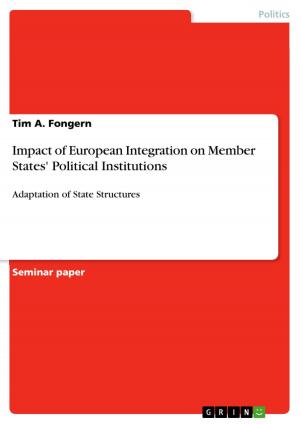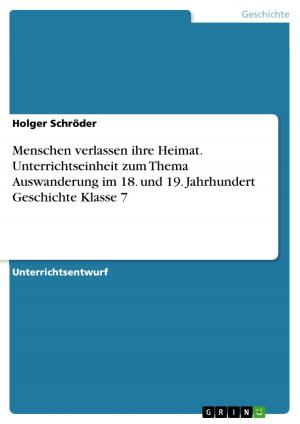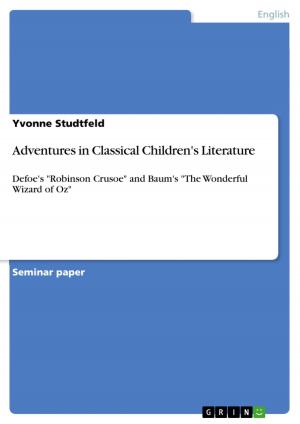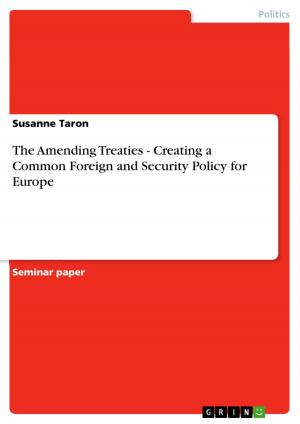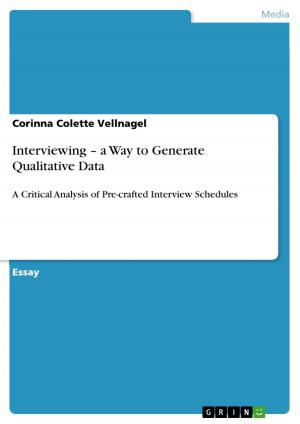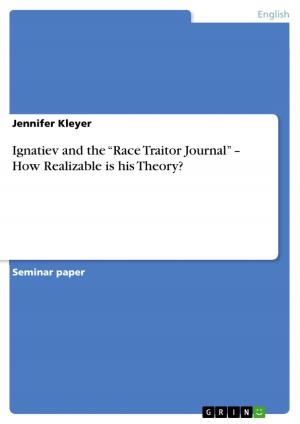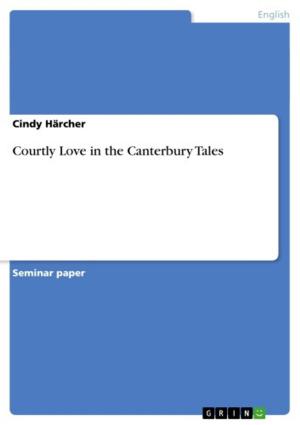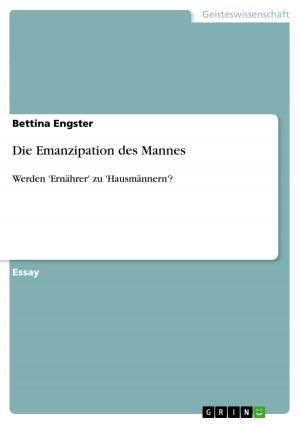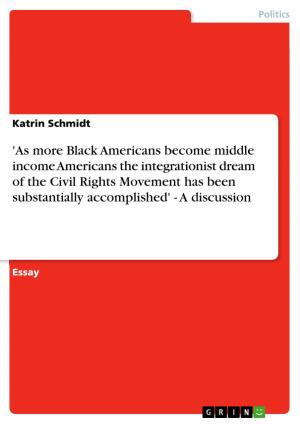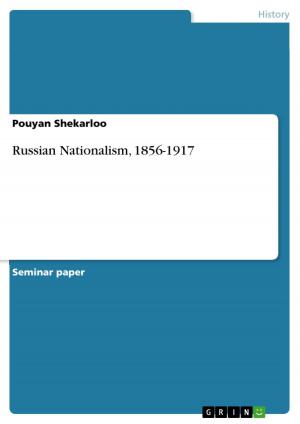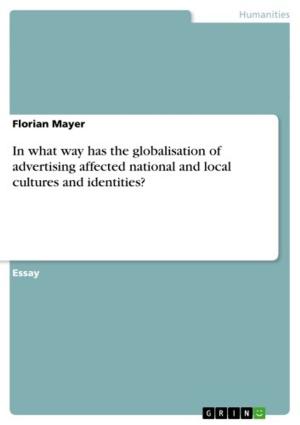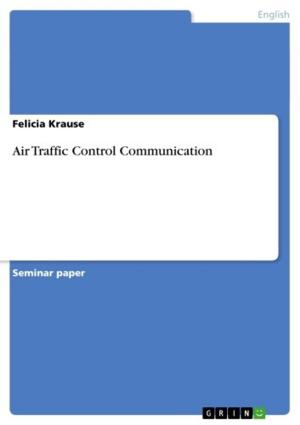Of Pharisees and Lawyers or And it is easier for heaven and earth to pass, than one tittle of the law to fail. (Luke 16.17)
Nonfiction, Entertainment, Drama, Anthologies| Author: | Paul Vierkant | ISBN: | 9783638544528 |
| Publisher: | GRIN Publishing | Publication: | September 13, 2006 |
| Imprint: | GRIN Publishing | Language: | English |
| Author: | Paul Vierkant |
| ISBN: | 9783638544528 |
| Publisher: | GRIN Publishing |
| Publication: | September 13, 2006 |
| Imprint: | GRIN Publishing |
| Language: | English |
Seminar paper from the year 2005 in the subject American Studies - Culture and Applied Geography, grade: 1,0, Free University of Berlin (John-F.-Kennedy-Institut), course: American Religion, Politics and Law, 5 entries in the bibliography, language: English, abstract: The following essay will deal with religion, law and politics in the USA. Because it is a broad topic, I will concentrate on the discourse about accommodation, or separation of state and church in America, with a focus on Stephen L. Carter - a distinguished law professor at Yale University. My thesis is that although Carter claims to be a separatist, his contradictory and biased arguments in most of his books indicate his accommodationist position. His methods are the dichotomization of church and state; his claim that society victimizes religion (his strange comparison of the Civil Rights movement and the Anti-Abortion movement); his assertion that religious people are oppressed by the majority (which according to him is religious), the Supreme Court, and American politics. Carter further maintains that religion is trivialized and privatized. His biased view on law is visible in the cases he discusses (predominantly separatist cases). His suggestive and popular style, as well as his constant references to God's will and his opinion that the Bible justifies almost everything, makes his argumentation nearly untouchable. Finally, I will show that Carter clearly holds God above the state and thus, his claim as a separatist cannot be maintained.
Seminar paper from the year 2005 in the subject American Studies - Culture and Applied Geography, grade: 1,0, Free University of Berlin (John-F.-Kennedy-Institut), course: American Religion, Politics and Law, 5 entries in the bibliography, language: English, abstract: The following essay will deal with religion, law and politics in the USA. Because it is a broad topic, I will concentrate on the discourse about accommodation, or separation of state and church in America, with a focus on Stephen L. Carter - a distinguished law professor at Yale University. My thesis is that although Carter claims to be a separatist, his contradictory and biased arguments in most of his books indicate his accommodationist position. His methods are the dichotomization of church and state; his claim that society victimizes religion (his strange comparison of the Civil Rights movement and the Anti-Abortion movement); his assertion that religious people are oppressed by the majority (which according to him is religious), the Supreme Court, and American politics. Carter further maintains that religion is trivialized and privatized. His biased view on law is visible in the cases he discusses (predominantly separatist cases). His suggestive and popular style, as well as his constant references to God's will and his opinion that the Bible justifies almost everything, makes his argumentation nearly untouchable. Finally, I will show that Carter clearly holds God above the state and thus, his claim as a separatist cannot be maintained.


